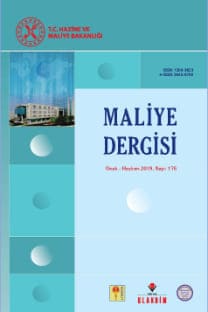Cinsiyete Duyarlı Bütçeleme Anlayışı
İlk defa Avustralya’da uygulamaya konulmuş cinsiyete duyarlı bütçeleme anlayışı, kadınların toplumda statülerinin yükseltilmesine yönelik bir uygulamadır. Bu anlayışta kadın ve erkekler arasında ayrımcılığın ortadan kaldırılmasına yönelik olarak devlet bütçeleri önemli fonksiyonlar üstlenmektedir. Nitekim günümüzde birçok ülkede ve ülkemizde bu yönde çalışmalar yürütülmektedir. Türkiye’de cinsiyete duyarlı bütçeleme henüz tartışılma aşamasındadır. Konuyla ilgili gerek siyasi gerekse sivil toplum kuruluşları tarafından bazı çalışmalar yapılmaktadır. Ülkemizde de yakın gelecekte cinsiyete duyarlı bütçeleme konusunda önemli adımların atılabileceği açıktır. Bu çalışmalar şüphesiz ülkemizin çağdaş bir toplum yapısına sahip olmasına katkıda bulunacaktır.
Gender Budgeting Approach
Gender budgeting approach, firstly began to applicated in Australia, is a practice to increase the statutes of women in the society. In this approach, the public budgets have important functions to remove discriminations between women and men. As a matter of fact, there are practices for this approach in many countries and also in Turkey. Gender budgeting is still in discussing phase in Turkey. Both politicians and civil society organizations have done some studies about it. Thus, it is clear that there will be taken important steps about gender budgeting in Turkey in future. Furthermore, the application of this approach is essential for our country to have been a developed country.
___
Bellamy, K., (2002), Gender Budgeting (A Background Paper For The Council Of Europe’s Infırmal Network Of Experts On Gender Budgeting), Council Of Europe, www.wbg.org.uk/pdf/Gender%20Budgetscouncil%20of%20Europe%20Bellamy%202oo3.pdf, (Erişim:25.03.2008).Birleşmiş Milletler Kadının Statüsü Komisyonu, (2008), Birleşmiş Milletler Kadının Statüsü Komisyonu 52. Oturumu, 25 Şubat-7 Mart 2008, Konferans Tarafından Kabul Edilen Kararlar, ABD.
Budlender, D., (2005), Expectations versus Realities in Gender-Responsive Budget Initiatives, Draft Working Document, United Nations Research Institute For Social Development, ss.1-32.
Budlender, D. Review of Gender Budget Initiatives, www.internationalbudget.org/resources/library/GenderBudget.pdf (Erişim:26.03.2008)
Elson D., (2004), “Engendering Government Budgets In The Context Of Globalization (s)”, International Feminist Journal Of Politics, 6:4, ss.623-42.
Kadının Statüsü Genel Müdürlüğü, (2007), Stratejik Plan (2008-2012), Ankara.
Kadının Statüsü Genel Müdürlüğü, (2006), Medeniyetler İttifakında Kadın Kongresi (28-29 Ocak 2006) Sonuç Raporu, Ankara.
Lombardo, E., (2003), Integrating or Setting the Agenda? Gender Mainstreaming in the two European Conventions on the Future of the EU and the Charter of Fundamental Rights, Paper for the ECPR Conference, Marburg, ss.1-39.
Nakray, K., (2006), Gender Budgeting and Its Implications for Feminist Research, Conference Proceedings – Thinking Gender – the NEXT Generation, UK Postgraduate Conference in Gender Studies, UK., ss. 1-10.
Rake, C., (2002), Gender Budgets: The Experience of the UK’s Women’s Budget Group, Paper prepared for the conference ‘Gender Balance – Equal Finance’, Basel, Switzerland, ss.1-17.
Sawer, M., (2002), “Australia: The Mandarin Approach To Gender Budgets”, Gender Budgets Make More Cents (Country Studies and Good Practice), (Editörler: Debbie BUDLENDER – Guy HEWITT), Commonmealth Secretariat, United Kingdom, ss.43-64.
Sharp, R., Broomhill, R., (2002), “Budgeting For Equality: The Australian Experience”, Feminist Economics, 8 (1), ss.25-47.
TBMM Plan ve Bütçe Komisyonu, (2007), 2008 Mali Yılı Merkezi Yönetim Bütçe Kanunu Tasarısı ile 2006 Mali Yılı Merkezi Yönetim Kesinhesap Kanunu Tasarısı’nın Plan Ve Bütçe Komisyonu Görüşme Tutanakları, Ankara.
Tine, D.N., (2002), “Rwanda: Translating Government Commitments Into Action”, Gender Budgets Make More Cents (Country Studies and Good Practice), (Editörler: Debbie BUDLENDER – Guy HEWITT), Commonmealth Secretariat, United Kingdom, ss.117-32.
http://www.un.org/esa/devagenda/gender.html, (Erişim:27.03.2008).
http://www.tbmm.info/modules.php?name=home&uid=nevingayeerbatur〈=tr&PHPSESSID=2eb1a7369e332a7ffb924b1f548893ae&name=announcement&file=index_detay&idMAnnouncement=5741&PHPSESSID=2eb1a7369e332a7ffb924b1f548893ae, (Erişim:27.04.2008).
http://www.tbmm.gov.tr/develop/owa/tutanak_g_sd.birlesim_baslangic?P4=20093&P5=H&PAGE1=1&PAGE2=1, (Erişim:30.04.2008).
- ISSN: 1300-3623
- Yayın Aralığı: Yılda 2 Sayı
- Başlangıç: 1973
- Yayıncı: Hazine ve Maliye Bakanlığı
Sayıdaki Diğer Makaleler
Kamuda Yönetici Performansının Bütüncül Değerlendirmesi (Yeni Bir Model)
Subprime Mortgage Kredilerinin Yükselişi ve Düşüşü
Danielle Di MARTINO, John V. DUCA
Cinsiyete Duyarlı Bütçeleme Anlayışı
Kıyı İşgallerine İlişkin Sorunlar ve Çözüm Önerileri
Ülkelerin Ekonomik Gelişmişlik Seviyeleri ve Vergi Yapıları Arasındaki İlişki
Sosyal Güvenliğin Demografik Boyutu: Türkiye'deki Emeklilik Sistemindeki Değişim
İBRAHİM ATTİLA ACAR, İsmail KİTAPCI
Eğitim Hizmetleri Bağlamında Vakıf Üniversitelerinin Finansal ve Vergisel Sorunları
Vergi Rekabetinin Kamu Harcamalarına Etkisi ve Harcama Rekabeti
